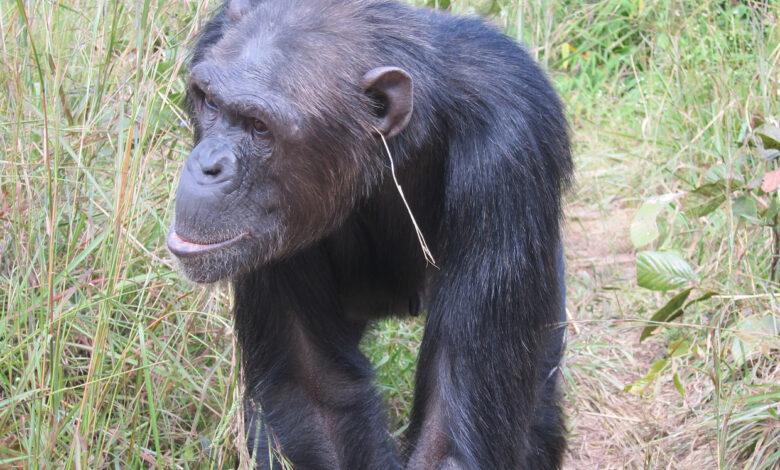Scientists have discovered that chimpanzees also follow fashion (video)

At a wildlife sanctuary in Zambia, chimpanzees have started their own “fashion trend” — they’ve started sticking grass and twigs in their ears, and some even in their anus. This is not a joke, but the conclusions of a new study conducted by scientists from Utrecht University. About this informs CNN.
It all started back in 2010 at the Chimfunshi Wildlife Orphanage Trust, when researchers first noticed a female chimpanzee wearing a blade of grass in her ear. Later, other members of her group repeated after her. There were no signs that the animals felt pain or discomfort – on the contrary, they were relaxed and calm.
The author of the study, scientist Ed van Leeuwen, called it “a fashion trend or a social tradition.” For more than a decade, similar behavior appeared in another group of chimpanzees living 15 kilometers away. Moreover, some individuals from this group began to insert objects into the anus.
Researchers were interested in how exactly this habit spread. It turned out that in one of the districts, shelter workers often cleaned their ears with matches or twigs. The chimpanzees who lived nearby began to imitate these actions. Over time, this behavior spread to the entire group, and over time to another, the one with which the same employees worked later.
According to van Leeuwen, this is an example of social learning, analogous to how people adopt each other’s habits. Similar examples have already been recorded. For example, in a zoo in the Netherlands, a female chimpanzee started walking as if she was holding a cub, even though she didn’t actually have one. Later, other females began to imitate this move, and new individuals who quickly adopted it were more easily integrated into the group.
Scientists assume that this “fashion” is a way for chimpanzees to socialize and establish contacts in a group. In sanctuaries, where there are no threats from predators and competition for resources, animals have more time to experiment and form cultural habits.
Despite this, researchers believe that wild chimpanzees are also capable of similar behavior – it’s just that it hasn’t been recorded yet. The team’s next research will focus on whether chimpanzees can invent new ways of finding food and form a cumulative culture similar to that of humans.
Primatologist Elodie Freimann from the University of Oxford called the discovery “amazing”. She noted that if chimpanzees can copy human behavior, they can probably copy it from other animals as well. According to her, this opens up new perspectives in the study of culture among primates.





